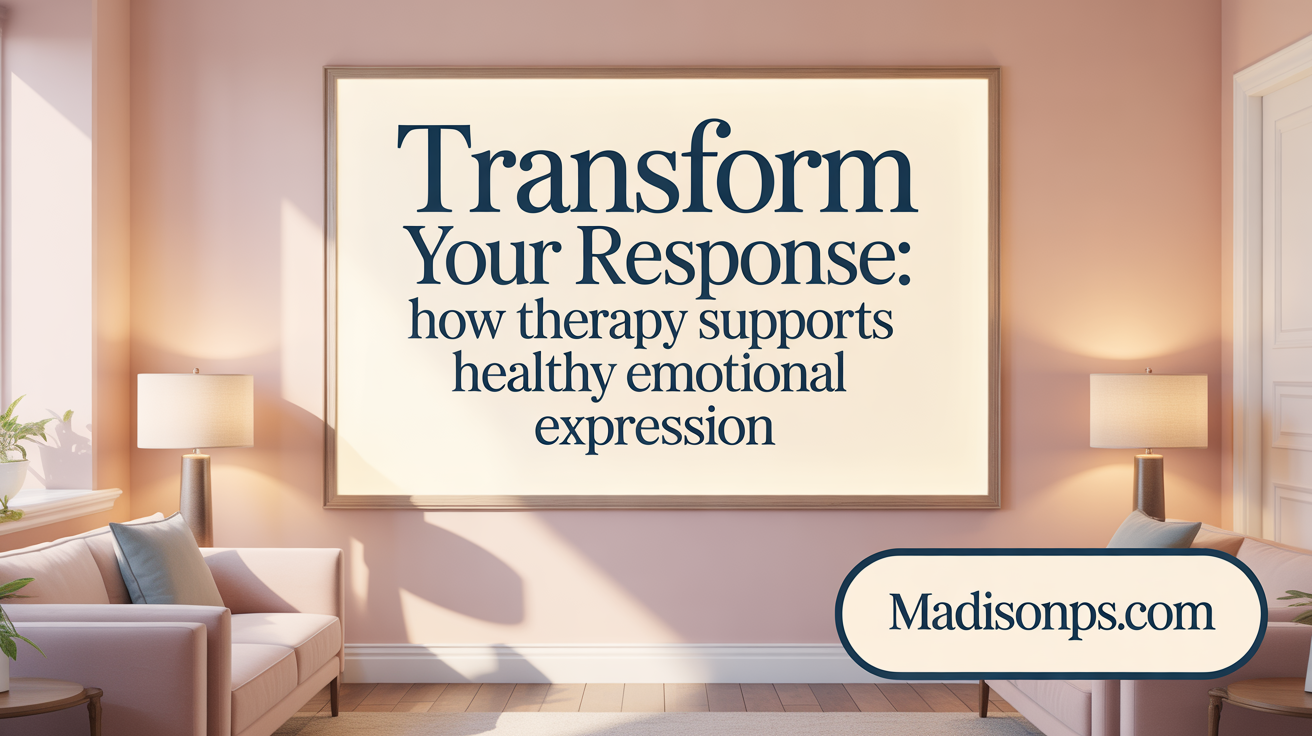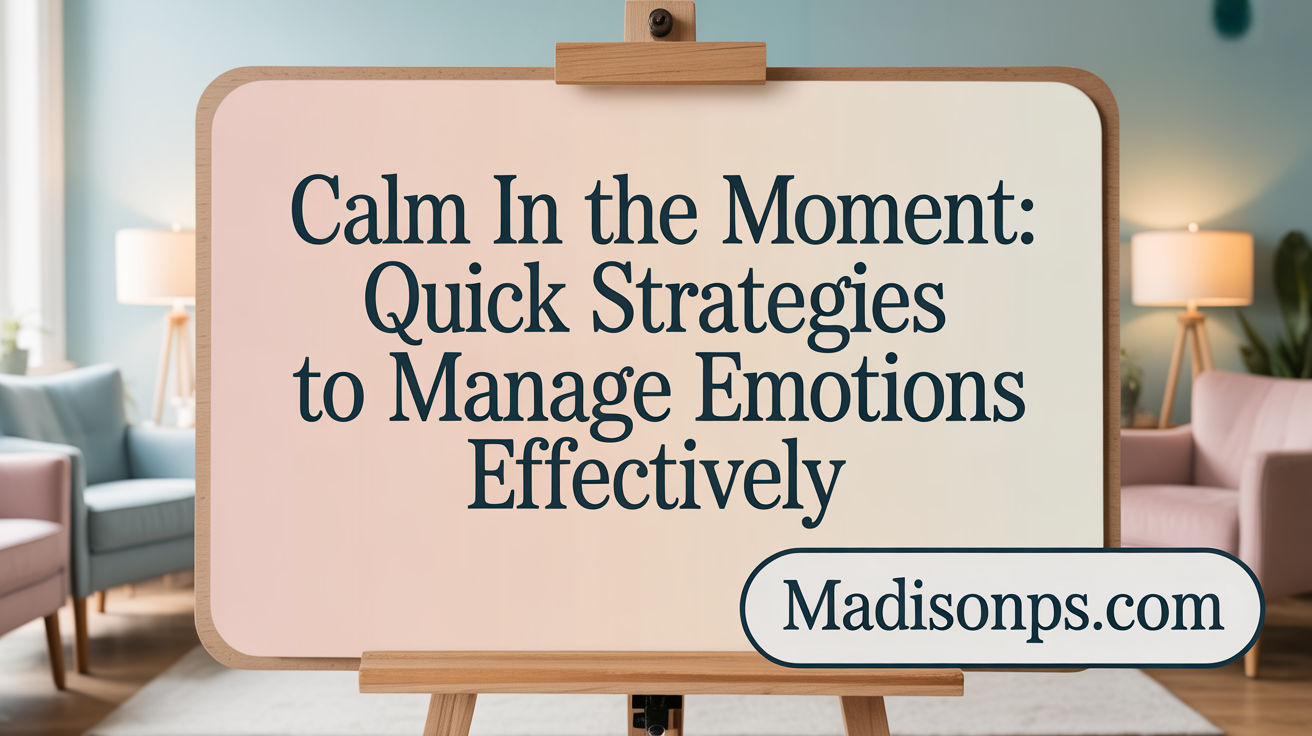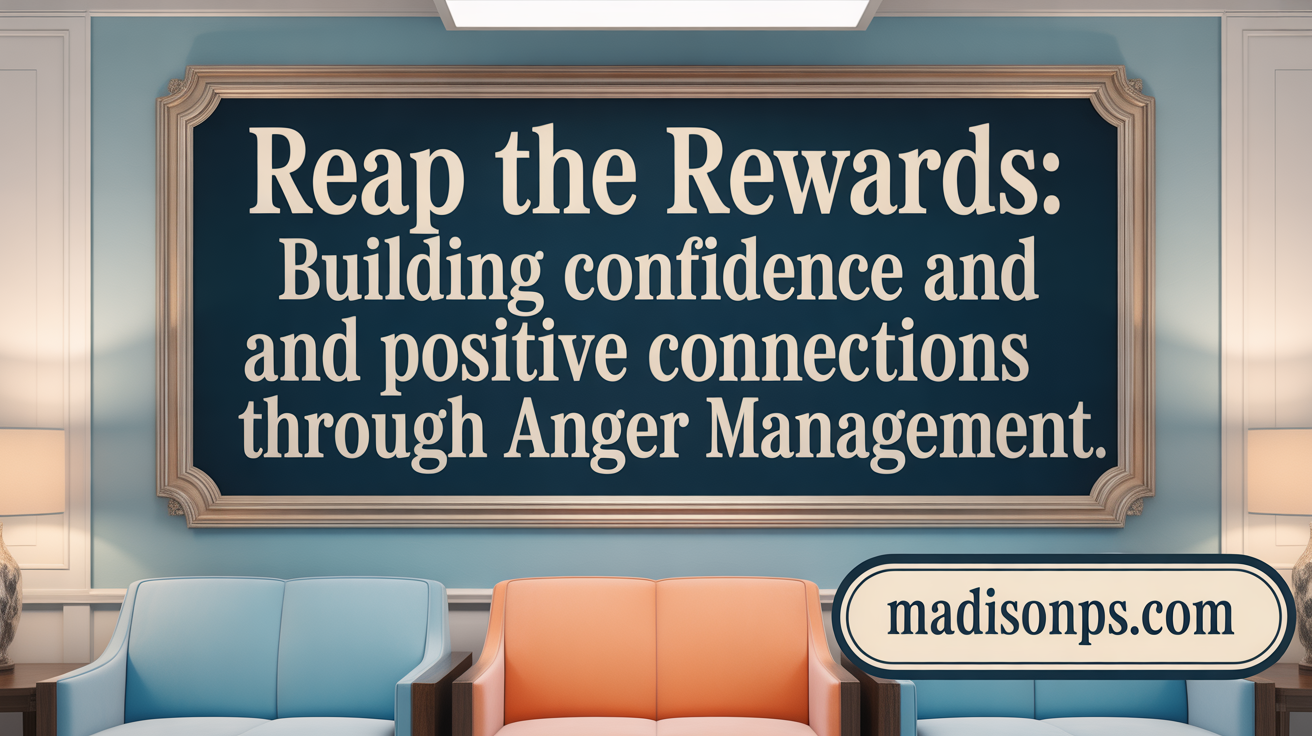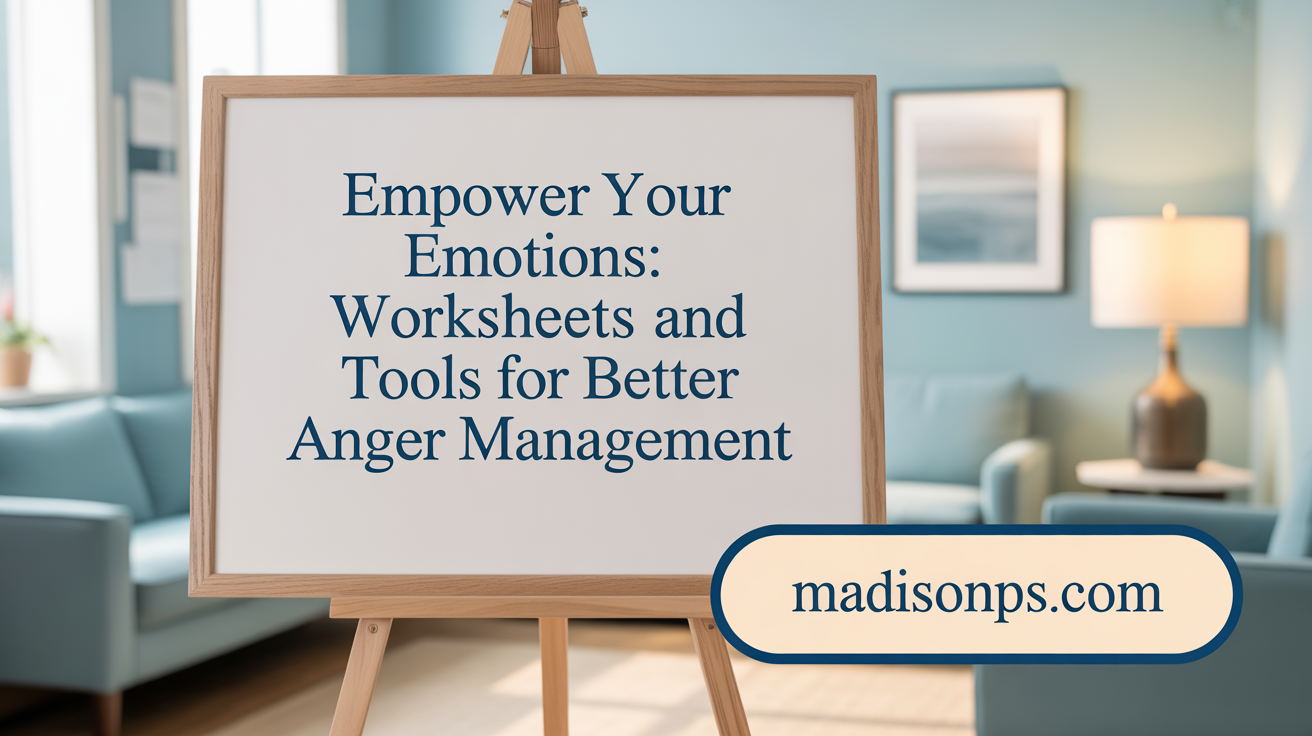Understanding Anger and Its Impact
Anger is a natural emotion experienced by everyone, yet when left unmanaged, it can lead to significant personal and relational challenges, as well as health problems. Therapy offers a structured, supportive approach to help individuals recognize, process, and express anger in healthy ways, transforming a potentially destructive force into a tool for personal growth and improved relationships. This article explores how therapy aids in managing anger effectively, the psychological underpinnings of anger, therapeutic methods, and resources available for emotional processing and anger management.
The Role of Therapy in Healthy Anger Processing

How does therapy help individuals process and manage anger in a healthy way?
Therapy plays a vital role in helping individuals handle anger constructively and safely. A primary feature of therapy is providing a secure space where clients can explore the roots of their anger without fear of judgment. This environment allows for honest reflection on personal triggers and underlying causes, such as past trauma, relationship issues, or unhealthy thought patterns.
A cornerstone of effective therapy is teaching clients how to recognize when their anger is mounting. Techniques like cognitive-behavioral therapy (CBT) assist individuals in identifying dysfunctional thoughts—such as assumptions of unfairness—that fuel anger. Through cognitive restructuring, clients learn to challenge and change these patterns, fostering healthier perspectives.
Relaxation skills are also crucial. Practices such as deep breathing, mindfulness, and meditation help calm physiological responses like increased heart rate and muscle tension, promoting emotional regulation during moments of anger. These techniques serve as immediate tools to prevent escalation.
Moreover, therapy encourages the development of constructive ways to express anger. Instead of reacting impulsively or destructively, clients are guided to communicate their feelings calmly, use assertive 'I' statements, or employ humor as a defusing strategy. Such approaches help maintain relationships and prevent harm.
Beyond individual sessions, family and group therapies address relational dynamics affecting anger. They foster healthier communication, improve conflict resolution skills, and support social coping strategies.
Overall, therapy combines these elements to build emotional resilience. Clients learn to understand their anger’s triggers, regulate their responses, and express emotions appropriately. This leads to better self-control, healthier relationships, and a more balanced emotional life.
Psychological Foundations of Anger and Emotional Regulation
How does understanding the psychological aspects of anger and emotional regulation contribute to better anger management?
Grasping the psychological roots of anger is crucial for effective management. Anger often acts as a response to perceived threats, injustices, or personal frustrations. By understanding these internal and external triggers—such as traumatic memories, social conflicts, or stressful situations—individuals can identify what sparks their anger.
Developing emotional awareness helps people recognize early signs of agitation, like muscle tension or rapid heartbeat. This awareness enables proactive response strategies, such as deep breathing or stepping away from stressful environments. Cognitive restructuring, a core component of therapies like CBT, teaches clients to challenge and replace negative thoughts—such as assumptions of unfairness or personal attack—that fuel anger.
Emotion regulation skills, including mindfulness, acceptance, and relaxation techniques, help modulate emotional responses, decreasing physiological arousal and preventing escalation. For example, mindfulness practice encourages observing emotions without judgment, fostering a calmer state of mind.
Recognizing individual differences—such as personality traits, genetic predispositions, or neural activity like heightened amygdala responses—allows therapists to tailor interventions. Some individuals might benefit from stress inoculation strategies or social skills training, while others might require trauma-focused work.
Altogether, these psychological insights support personalized approaches, leading to better emotional control, fewer impulsive reactions, and healthier interpersonal relationships. Incorporating knowledge of how emotions function psychologically helps individuals cope more effectively with anger, enhancing overall well-being and reducing health risks linked to chronic anger.
Effective Therapeutic Approaches for Anger Management
What are the most effective therapeutic techniques and approaches for anger management?
Managing anger effectively often involves a combination of proven therapy methods that address emotional, cognitive, and physiological aspects. Cognitive Behavioral Therapy (CBT) stands out as one of the most effective approaches. It helps individuals identify and modify destructive thought patterns and beliefs that fuel anger. Techniques such as cognitive restructuring and thought-stopping are used within CBT to challenge assumptions like overgeneralizations or catastrophizing, promoting calmer responses.
Relaxation techniques also play a crucial role in anger management. Methods like deep breathing exercises, progressive muscle relaxation, mindfulness, and meditation are employed to calm the body's physiological response to anger. These practices help reduce physiological arousal, making it easier for individuals to think clearly and respond more appropriately.
Skills training is another fundamental component. Clients learn assertive communication to express feelings without aggression, along with conflict resolution and problem-solving skills. Such training enhances interpersonal interactions, helping avoid misunderstandings and reactive outbursts.
In addition, therapies such as Dialectical Behavior Therapy (DBT) incorporate mindfulness and emotional regulation strategies, assisting individuals in managing intense emotions and improving distress tolerance.
Structured programs often combine these elements, providing a comprehensive approach to anger control. These programs might include stress inoculation training, humor-based techniques, or environmental modifications like creating space for cooling-off periods.
Overall, integrating cognitive restructuring, relaxation techniques, skills training, and mindfulness-based practices in therapy helps individuals regulate emotions better, build healthier relationships, and manage anger constructively over the long term.
Practical Strategies and Tools for Healthy Anger Processing
When it comes to managing anger healthily, several practical methods stand out, especially evidence-based therapies like Cognitive Behavioral Therapy (CBT) and Eye Movement Desensitization and Reprocessing (EMDR).
CBT primarily focuses on helping individuals recognize and challenge their negative thought patterns that fuel feelings of anger. By reframing these thoughts into more balanced and rational perspectives, people can reduce emotional reactivity and respond more calmly in triggering situations.
EMDR, on the other hand, is particularly effective in processing unresolved trauma that may contribute to anger outbursts. It involves guided eye movements or other bilateral stimulations to desensitize traumatic memories, which can lessen their emotional impact and ease anger responses rooted in past experiences.
In addition to these therapies, structured techniques like the Change Triangle guide individuals from defensive reactions—such as blame or denial—toward experiencing and releasing their core anger safely. This approach encourages acknowledging underlying feelings of sadness, shame, or fear, then imagining appropriate, compassionate ways to express anger.
Other vital tools include relaxation and visualization techniques. Deep breathing exercises trigger the body’s relaxation response, calming physiological symptoms like rapid heartbeat and muscle tension. Combining this with mental imagery, such as envisioning a peaceful place, can further ease emotional intensity.
Physical outlets like exercise, dancing, or even smashing a safely wrapped object can help dissipate built-up tension. These activities provide an embodied way to release anger constructively, reducing the risk of explosive outbursts.
Finally, assertive communication plays a crucial role in healthy anger management. Using 'I' statements—such as, 'I feel upset when...'—allows individuals to express feelings without blaming others, fostering better understanding and conflict resolution.
Seeking professional support when anger becomes overwhelming is equally important. Therapists can tailor interventions to individual needs, ensuring that strategies like CBT, EMDR, relaxation, and communication skills are integrated effectively. Together, these tools create a comprehensive approach to processing anger in a constructive and empowering manner.
Immediate Techniques to Control Anger When Triggered

What techniques can be used to control anger immediately when feeling triggered?
When anger flares up suddenly, it’s crucial to employ quick strategies to manage the intense emotional and physical reactions. One of the most effective methods is deep breathing. Practicing square breathing—inhale for four seconds, hold the breath for four seconds, exhale for four seconds, and hold again for four seconds—triggers the body’s relaxation response and helps slow the heart rate.
Progressive muscle relaxation is another useful tool. This involves tensing and then relaxing different muscle groups, which can reduce physical tension associated with anger.
Taking a timeout or stepping away from the triggering situation provides emotional space. Even a few moments alone can help individuals cool down and gain clarity, preventing impulsive reactions.
Physical activity, such as walking, stretching, or light jogging, helps burn off excess energy that fuels anger, shifting focus and releasing built-up tension.
Using mindfulness and visualization techniques—such as imagining a peaceful place or listening to calming music—can ground emotions and lower physiological arousal.
Being attentive to early warning signs, like clenched fists, tense muscles, rapid breathing, or racing thoughts, allows individuals to apply these techniques before anger escalates further.
Self-talk and affirmations during moments of rising anger also play a role. Reminding oneself to stay calm, focus on the present, or repeat calming phrases can help interrupt aggressive impulses.
Overall, combining breathing exercises, physical movement, mindfulness, and self-awareness creates a powerful toolkit for immediate anger control, fostering better emotional regulation in challenging moments.
Addressing Trauma, PTSD, and Their Relationship to Anger in Therapy
What is the connection between trauma, PTSD, and anger, and how does therapy address this connection?
Trauma and Post-Traumatic Stress Disorder (PTSD) are often associated with increased levels of anger. People affected by trauma may experience irritability, outbursts, and an overall heightened arousal state, which is part of the body's stress response to perceived dangers or threats. This anger frequently acts as a survival mechanism, alerting individuals to danger. However, when these reactions become persistent or 'stuck,' they can interfere with daily life and relationships.
In therapy, treatment goals include helping clients recognize the connection between their traumatic experiences and anger responses. Techniques such as Cognitive Behavioral Therapy (CBT), trauma-focused therapies, and anger management strategies are used to address these issues. Therapists work to help individuals process traumatic memories in a safe environment, decreasing the intensity and frequency of angry reactions.
By exploring underlying beliefs and thought patterns that fuel anger, therapy aims to reframe dysfunctional thoughts and reduce hyperarousal symptoms. This process fosters healthier emotional regulation, allowing individuals to respond to stressors and triggers more adaptively.
Ultimately, effective therapy for PTSD-related anger can lead to reduced irritability, improved emotional control, and more stable interpersonal relationships. It empowers individuals to manage their anger constructively, contributing to overall recovery and well-being.
Health and Relationship Benefits of Anger Management Therapy

What are the benefits and effectiveness of anger management therapy?
Anger management therapy offers numerous advantages for individuals seeking to handle their emotions better. It helps improve emotional regulation by teaching techniques such as relaxation exercises, cognitive restructuring, and mindfulness. These skills enable clients to recognize their triggers, understand their anger responses, and develop healthier ways to express feelings.
Through therapy, individuals also learn to communicate more effectively, resolve conflicts better, and reduce impulsive reactions. Programs often include cognitive-behavioral therapy (CBT) and dialectical behavior therapy (DBT), which focus on modifying thought patterns and increasing emotional resilience.
Research indicates that structured anger management interventions can significantly lessen the frequency and intensity of angry outbursts. Participants typically experience better mental health, improved relationships, and a decreased risk of health problems linked to chronic anger, such as high blood pressure and heart disease. Overall, therapy helps foster long-lasting emotional well-being, allowing individuals to respond to everyday stressors more calmly and constructively.
Resources and Interactive Tools for Anger Management and Emotional Processing
 There are a variety of resources designed to assist with emotional regulation and anger management, especially worksheets and interactive tools. These materials aim to support individuals in recognizing their triggers, understanding their emotions, and developing constructive responses.
There are a variety of resources designed to assist with emotional regulation and anger management, especially worksheets and interactive tools. These materials aim to support individuals in recognizing their triggers, understanding their emotions, and developing constructive responses.
One common type of resource is worksheets, such as the Anger Iceberg and Anger Funnel. The Anger Iceberg worksheet helps individuals see that outward anger is often driven by deeper feelings like sadness, fear, or guilt stored beneath the surface. It encourages exploring primary emotions before reacting, fostering awareness and compassion. The Anger Funnel teaches clients to identify the stages of their anger, from initial trigger to outward expression, allowing for better self-control.
In addition, tools for recognizing warning signs and triggers are vital. These include worksheets that help individuals pinpoint early physical sensations like tense muscles, rapid breathing, or clenched fists, which indicate rising anger. Understanding these signals allows for timely use of coping strategies such as deep breathing or stepping away from stressful situations.
Interactive exercises in relaxation and emotional awareness are also highly beneficial. Techniques like mindfulness meditation, deep breathing, and visualization help calm physiological arousal, making it easier to think clearly and respond appropriately. Some programs incorporate role-playing, imagery, or guided relaxation to reinforce these skills.
For children and adults alike, specialized resources exist. Children’s tools often include coping skills worksheets, anger thermometer charts, and message-decode exercises to teach emotional literacy from a young age. For adults, self-monitoring records, psychoeducational handouts, and stress management guides are widely available—many free online, like those offered by Therapist Aid.
Overall, these printable worksheets and interactive activities serve as valuable complements to therapy, empowering individuals to practice emotional regulation techniques independently. They help build ongoing skills for managing anger constructively, fostering healthier relationships and emotional well-being.
The Biological and Emotional Role of Anger Explained
How does anger serve as a survival mechanism?
Anger is an important emotional response that helps humans defend themselves and their values. It acts as a alert system that signals when something unjust or threatening is happening, prompting action to protect oneself. This reaction is rooted in our biology and has historically helped people survive dangerous situations.
What are the different types of anger?
There are mainly two kinds: core anger and defensive anger. Core anger directly responds to perceived violations or threats, like injustice or harm. Defensive anger, on the other hand, shields other feelings such as shame or fear. Recognizing which type you're experiencing can help in managing it healthily.
What physiological changes happen when someone gets angry?
When anger spikes, the body undergoes significant changes. These include increased blood pressure, rapid heartbeat, clenched fists, and tense muscles. These responses prepare the body to either fight or flee but can be damaging if anger becomes chronic or intense.
Why is it important to recognize what anger is trying to tell us?
Understanding anger’s message allows individuals to interpret what their emotions are signaling. It might indicate feelings of injustice, disappointment, or fear. Appreciating this helps in addressing the root causes instead of just reacting outwardly.
How does anger signal underlying emotions?
Often, anger masks deeper feelings like sadness, hurt, or vulnerability. By exploring these underlying emotions, people can process their feelings more effectively through therapy or self-awareness techniques. Recognizing and naming these emotions can lead to healthier expression and better emotional regulation.
Developing Long-Term Skills for Managing Anger Effectively
How can cognitive and behavioral changes support long-term anger management?
Cognitive and behavioral strategies are foundational to lasting anger control. Cognitive restructuring, a key technique in therapy, helps individuals recognize and challenge dysfunctional thoughts that trigger anger, such as assumptions of intentional harm. By reframing these thoughts into more rational and balanced perspectives, clients can prevent escalation.
Behaviorally, practicing relaxation techniques like deep breathing, mindfulness, and physical activities can reduce physiological arousal that fuels anger. Repeating these habits over time fosters a calmer response in stressful situations, creating new patterns of reacting to triggers.
What role does emotional regulation and self-awareness play?
Emotional regulation is about managing feelings before they turn into explosive anger. Developing this skill involves increasing self-awareness to identify warning signs early, such as muscle tension or rapid heartbeat. Recognizing these cues allows individuals to implement calming exercises proactively.
Self-awareness also helps in understanding underlying emotions like sadness, fear, or betrayal that often fuel anger. Exploring these core feelings leads to healthier emotional processing. Tools like the Anger Iceberg worksheet facilitate this exploration, promoting deeper insight.
How can communication and conflict resolution skills improve long-term outcomes?
Healthy communication is crucial. Techniques such as assertiveness—using 'I' statements and expressing needs calmly—enable individuals to address issues directly without aggression.
Conflict resolution training enhances the ability to negotiate and find mutually acceptable solutions, reducing feelings of frustration and helplessness. Building these skills contributes to healthier relationships and reduces recurrent anger outbursts.
Why are practice and follow-up important in therapy?
Consistent practice reinforces new skills learned during therapy. Regularly applying relaxation, cognitive restructuring, and communication techniques ensures they become automatic responses. This ongoing effort helps maintain emotional stability over time.
Follow-up sessions are vital—they provide support, help troubleshoot setbacks, and adapt strategies as needed. Long-term therapy may involve periodic check-ins to sustain progress and address new challenges.
What is the impact of these skills on mental health and relationships?
Improved anger management fosters better mental health by decreasing symptoms of anxiety, depression, and stress. It also minimizes health risks linked to chronic anger, such as high blood pressure.
On a relational level, these skills help repair damaged relationships, enhance trust, and foster more positive interactions. Learning to express anger constructively promotes mutual respect and understanding, leading to more fulfilling connections.
| Skill Focus | Techniques Included | Expected Benefits |
|---|---|---|
| Cognitive & Behavioral Changes | Cognitive restructuring, relaxation exercises | Long-lasting calmness, better stress handling |
| Emotional Regulation | Mindfulness, self-awareness training | Reduced impulsivity, healthier emotions |
| Communication & Conflict Skills | Assertiveness, negotiation, 'I' statements | Improved relationships, fewer conflicts |
| Practice & Follow-up | Regular exercises, therapy check-ins | Sustainable progress, resilience against setbacks |
| Overall Impact | Decreased health risks, improved personal and social life | Better quality of life, stronger relationships |
Embracing Therapy to Transform Anger
Therapy offers a comprehensive and evidence-based pathway to understand, manage, and express anger in healthier ways. By exploring the psychological roots of anger, learning practical coping strategies, and recognizing the connections between trauma and emotional responses, individuals can reclaim control over their emotions. The combination of therapeutic techniques like CBT, relaxation methods, and trauma-informed care empowers people to reshape how they relate to anger and improve their overall well-being. With continued practice, support, and the wealth of available resources, therapy transforms anger from a disruptive force into a source of strength and constructive expression, fostering healthier relationships and a better quality of life.
References
- Anger Management: What It Is, Skills & Techniques - Cleveland Clinic
- The protective side of anger - American Counseling Association
- 11 Anger Management Therapy Techniques and Interventions
- 10 Healthy Ways to Release Rage | Mental Health America
- Understanding anger: How psychologists help with anger problems -
- Anger management: 10 tips to tame your temper - Mayo Clinic
- Anger | Fact Sheet - ABCT
